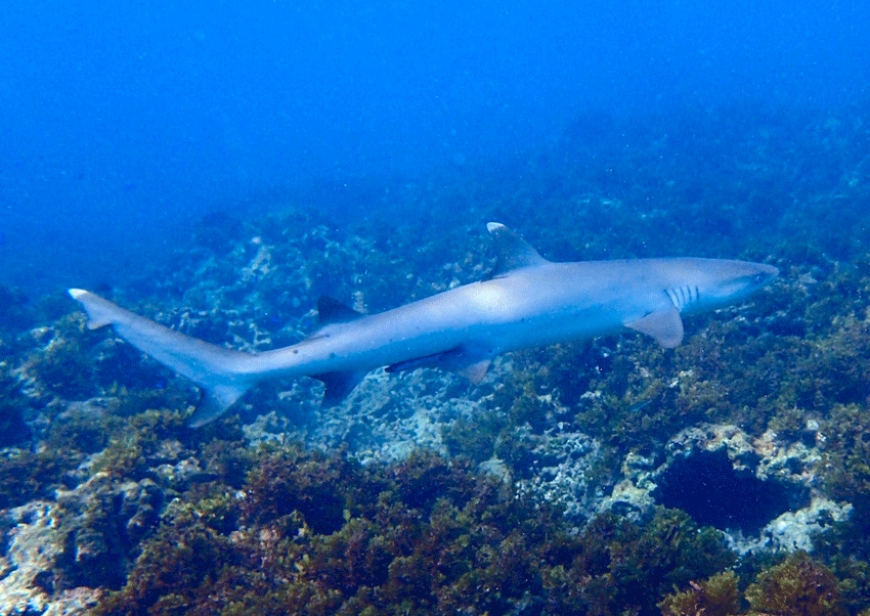As a matter of fact, in the context of reef restoration, the presence of sharks is an achievement because it tells us the reef is showing signs of recovery. Great news for our Reef Rescuers Program!
A healthy coral reef provides food and shelter to marine life and attracts large populations of fish. The fish in turn, will attract predators. Being at the top of the marine food chain, sharks are the ultimate predators on the reef.
By fulfilling their role of top predators, sharks also maintain healthy fish populations. They eliminate the weak and sick individuals leaving the fittest to thrive and reproduce.
Coral reef restoration can be applied as a means to restore food webs and ecosystem services (e.g. increase target fish population densities for Seychelles artisanal fisheries). This is why the Reef Rescuers project was launched by Nature Seychelles is 2010.
The picture is of a white-tip reef shark, a species listed as “near threatened” on the IUCN red list of threatened species mostly due to overfishing (line and net-trawl) in shallow reef areas.
This species is particularly vulnerable because of its slow growth (about 2-4 cm/year), late sexual maturity (8-9 years old) and small litter size (less than 5).
Reef restoration coupled with fishing bans enforced in Marine Protected Areas - such as Cousin Island Special Reserve - can be strong conservation strategies for threatened species.
In the context of worldwide declines in fishing stocks, these “sanctuaries” are critical feeding and breeding grounds for species like the white-tip reef shark.
By Louise Malaisé

